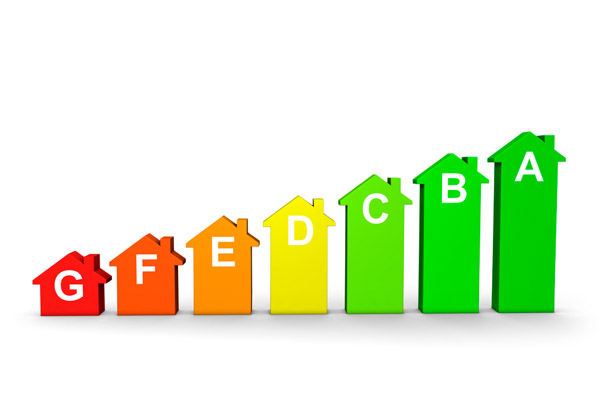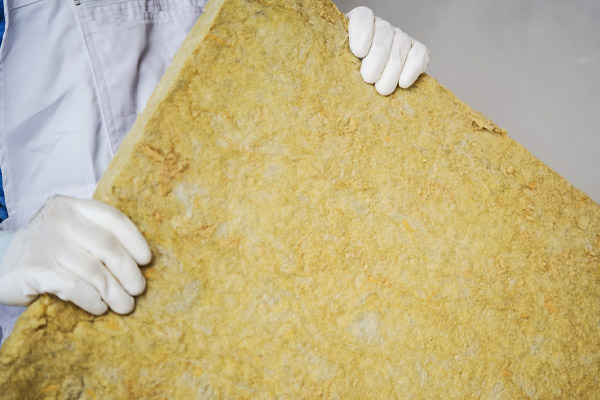The Environmental Impact of Proper Insulation: A Closer Look

The environmental impact of proper insulation is a topic of growing importance today. As we strive for energy efficiency and sustainable living, understanding the role of insulation in reducing environmental impact becomes crucial. Proper insulation not only helps regulate indoor temperature and improve energy efficiency but also has significant implications for reducing greenhouse gas emissions, minimizing energy consumption, and decreasing our carbon footprint. This article delves deeper into the environmental benefits of proper insulation. We will explore how environmentally friendly insulation contributes to a greener and more sustainable future.
The Environmental Impact of Proper Insulation: A Closer Look
Contents
Proper insulation has several positive environmental impacts:
Energy Efficiency

Proper insulation reduces heat transfer, resulting in less reliance on heating and cooling systems. It acts as a barrier that inhibits the transfer of heat between indoor and outdoor spaces. This leads to lower energy consumption and reduced carbon emissions associated with energy generation. When heating and cooling systems operate less frequently or at lower intensities, the demand for energy decreases.
By effectively insulating homes, buildings, and other structures, we can make a vital contribution to reducing our environmental impact and mitigating climate change.
Reduced Greenhouse Gas Emissions
Proper insulation is critical in reducing the need for excessive heating and cooling. It, in turn, reduces the reliance on fossil fuels for energy. Fossil fuels, such as natural gases, oil, and coal, are significant sources of greenhouse gas emissions. Proper insulation helps combat climate change and global warming by minimizing the use of these fuels.
Reducing greenhouse gas emissions helps lessen the negative impacts of climate change, including rising temperatures, sea-level rise, and extreme weather events. Investing in proper insulation is a tangible and effective way to contribute to a more sustainable future and reduce our carbon footprint.
Related Article: What Is A Hot Roof In Fort Collins Homes?
Conservation of Natural Resources

Improved insulation in buildings results in decreased energy requirements for maintaining comfortable indoor temperatures. As a result, the demand for natural resources used in energy production is reduced. These natural resources include:
- Coal
- Oil
- Gas
By lowering energy consumption, proper insulation helps conserve these valuable resources. Reducing resource demand positively impacts the environment by reducing fossil fuel extraction, transportation, and combustion. It also contributes to sustainable development by promoting resource conservation. It minimizes the associated environmental impacts, including air pollution and greenhouse gas emissions.
Lower Environmental Footprint
Proper insulation plays a vital role in reducing the overall environmental footprint of buildings. Insulation helps decrease the reliance on fossil fuel-based energy sources and reduces associated pollution by minimizing energy consumption, making environmentally friendly insulation. This contributes to sustainable development goals by conserving valuable resources and mitigating environmental impacts.
Improved insulation also helps create more energy-efficient buildings, reducing the need for additional infrastructure. It reduces the strain on natural resources.
Related Article: Summer Cooling Tips For Every Fort Collins Homeowner
Improved Indoor Air Quality
Insulation serves as a barrier against air leakage. It effectively seals the building envelope and prevents the infiltration of pollutants from the outside. Proper insulation contributes to improved indoor air quality by blocking the entry of outdoor contaminants. It helps create a healthier and more comfortable living or working environment. This has significant benefits for occupants’ health, reducing respiratory issues and other risky health problems associated with poor indoor air quality.
Insulation reduces air leakage, which in turn reduces the reliance on artificial ventilation systems. This results in energy savings. Combining enhanced indoor air quality and reduced energy consumption makes insulation a valuable investment for both environmental sustainability and occupant well-being.
Noise Reduction
In addition to its thermal properties, insulation serves as an effective sound barrier. It reduces the transmission of noise between different spaces. Proper insulation helps create a quieter and more peaceful environment by absorbing and dampening sound waves. This enhances overall well-being.
Whether it’s reducing external noise from traffic or minimizing sound transfer between rooms in a building, insulation contributes to a more comfortable living or working environment. This can have positive effects on concentration, productivity, and overall quality of life. Investing in high-quality insulation improves acoustic comfort and creates spaces promoting tranquility and relaxation.
Related Article: Clearing Up Fallacies About Spray Foam Insulation
Energy-Efficient Insulation Types

There are many types of insulation that are known for their energy efficiency. Here are a few commonly used options:
- Fiberglass Insulation: Made from glass fibers, fiberglass insulation is a more popular option due to its affordability and effectiveness. It is available in batts or rolls and can easily be installed on walls, attics, and floors.
- Cellulose Insulation: Cellulose insulation is an eco-friendly option. It is made from recycled paper or plant fibers. It is treated with fire retardants and can be blown into wall cavities or attic spaces.
- Spray Foam Insulation: This type of insulation expands and forms a continuous barrier. It provides an excellent air seal. It can be used in various areas, including walls, attics, and crawl spaces. However, professional installation is typically required.
- Mineral Wool Insulation: Mineral wool is fire-resistant and offers good thermal and sound insulation. It is made from minerals like rocks or slag. It is available as batts or loose-fill and is commonly used in walls, ceilings, and roofs.
- Rigid Foam Insulation: Rigid foam insulation boards offer high insulating values. It can be used in walls, roofs, and foundations. They provide a continuous insulation layer and have good moisture resistance properties.
- Reflective Insulation: Reflective insulation typically consists of a reflective surface, such as aluminum foil. It helps reflect heat away. It is often used in attics, roofs, and walls, particularly in hot climates.
The choice of insulation depends on various factors, including the specific application, budget, local climate, and desired energy efficiency goals. Consulting a professional insulation contractor can help determine the most suitable type of insulation for your specific needs.
Conclusion
Proper insulation has a positive environmental impact by reducing energy consumption. Its benefits extend beyond energy savings, including improved indoor air quality, reduced noise pollution, and enhanced living or working environments. Investing in proper insulation is a crucial step towards sustainable development, as it contributes to mitigating climate change. This fosters a healthier and more eco-friendly future for generations to come. Reducing our carbon footprint and creating energy-efficient spaces can make a difference in building a more sustainable world.
Related Article: What Is Thermal Bridging In Colorado Homes?
Environmentally Friendly Insulation Services In Fort Collins, Colorado
If you are considering air sealing or upgrading your home’s insulation, it is best to seek professional guidance. However, not all professionals offer the same level of quality and pricing. Always make sure you work with the best professionals available in your area. Fortunately, residents of Fort Collins and nearby areas can turn to Ascend Construction for top-notch service.
At Ascend Construction, we specialize in insulation removal and installation, air sealing, energy conservation, energy audits, whole-house fan installations, and more. We’re confident that our service will go above and beyond your expectations.

For a free consultation with our experts, get in touch with Ascend Construction today. Our team can offer practical solutions to address any problem areas in your Fort Collins home, along with affordable pricing and high-quality work. All of the work that we perform is backed by a satisfaction guarantee. Click here to contact us, or call us using the button below. We offer free, no-obligation, in-home consultations.
Ascend Construction
301 S Howes St #1241
Fort Collins, CO, 80521